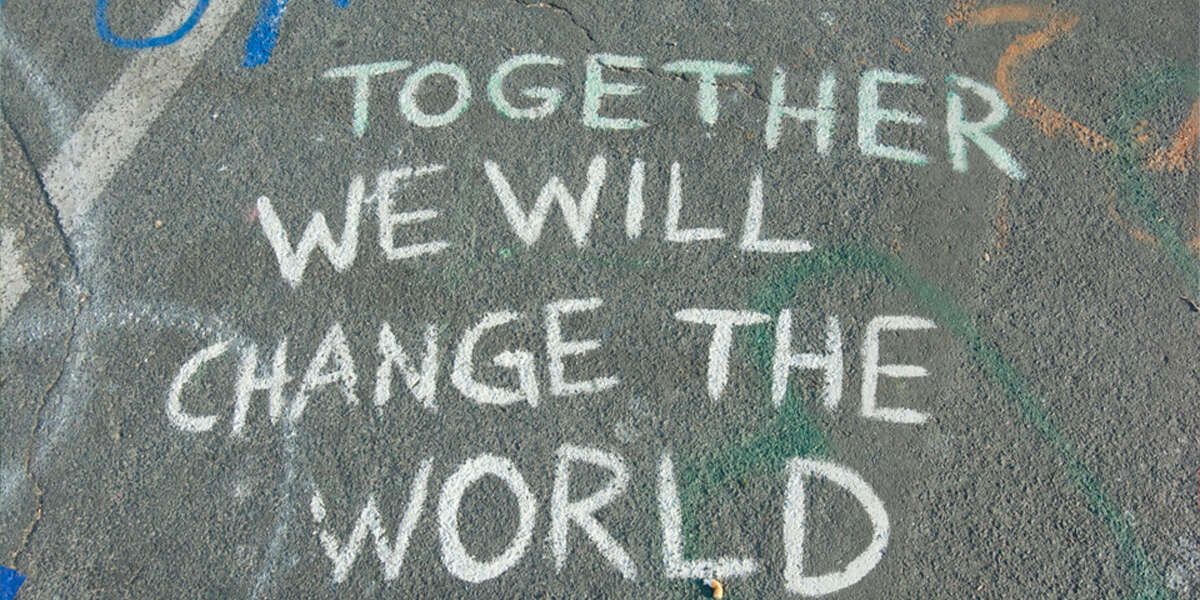Global Rise in Environmental Concern
Based on the values and lifestyle surveys that were conducted between 2014 and 2019, Glocalities has the unique means to track and reveal the recent changes that shape our international society. The trend survey shows that the rising environmental concern is accompanied by four related global trends: a rise in eco-consciousness, a focus on vitality, taking precautions when risks arise and an increased interest in politics. Because values and consumer needs are shifting, there will be an immense marketplace for environmentally friendly alternatives in the decade to come. This is a major opportunity for countries, businesses and leaders to tap into.
Read all about the global trends and download the free report here
Concern about damage humans cause to the planet unites people from all walks of life
The survey reveals that rising environmental concern is a topic that unites people from all walks of life. The trend is visible in both advanced and upcoming economies, in all world regions and across the board in all age groups, among educational levels, genders and sociocultural values segments.
On the topic of ecological concern people are considerably less divided than on topics such as globalism, pessimism and support for patriarchy that are currently polarizing societies and are more culturally and psychologically determined in nature. Authoritarian leaders often play into these polarities to divide humanity and stay in power.
The global trend survey shows that protecting our common home is not part of a cultural war between progressives and conservatives, but a fight against a shared adversary: greed, ignorance and reckless exploitation, the deeper causes of the ecological crisis.
The results point to a timely opportunity for building a grand coalition for protecting the planet, uniting people from all around the world and from different backgrounds. Even in countries that elected climate change sceptics in office such as the USA and Brazil, environmental concern has been on the rise since the first survey in 2014.
Read all about the global trends and download the free report by filling out the form on this page.
Martijn Lampert, Research Director Glocalities says:
"Our international studies show that citizens worldwide are increasingly worried about the fundamental damage that humans cause to the planet, as a result of reckless exploitation and pollution. Scientists have been warning us for a long time, but now the world population at large is waking up to the urgency of the ecological crisis."
"It is a strong signal that, in these times of increasing international polarization, environmental concern for our common home is a topic that unites people from all walks of life. The global trend research shows that there is potential and momentum for a grand coalition for safeguarding the vitality of our planet and future generations."
Questions and answers with respect to the USA and the global results
The polling in the U.S. showed a strong increase in concern about the environment. What do the changes indicate?
‘’For the report release on August 29 we conducted extra analyses with respect to the situation in the Unites States. Since our first wave in 2014 more and more Americans say they worry about the damage that humans cause to the planet, just like people from all over the world. In the USA this percentage has gradually risen from 61% in 2014 to 69% in 2019. In the U.S. the rise is strongest (+11%) among republicans. In 2019 58% of U.S. republicans say that they are concerned about human cause damage to the planet and only 17% of republicans explicitly say they don’t worry about this (the rest is undecided). The survey also shows a 10 percentage point increase among U.S. Republicans who said they tried "to live eco-consciously". When looking deeper into the data it becomes clear that the highest rise in environmental concern (+18%) is visible among younger republicans (18-34). Among younger U.S. republicans 67% worry about the human caused damage to the planet and only 11% does not. Also globally the rise of environmental concern is visible across all age groups (on average 6%), but strongest (on average 9%) among the youngest age group (18-24). The survey also shows an increased concern about the environment among U.S. Democrat voters at 83%, up 9% since the first wave in 2014.’’
What is driving the change among Republican voters?
‘’Being a steward of the earth is part of the Christian faith. Now the scientific evidence of human caused damage to earth is abundantly available and people see the consequences with their own eyes –think for example about plastic waste in the environment and oceans, increasing wildfires, droughts and floodings- opinions are shifting among republicans. And the shift is even more prominent among the younger republicans who are more globally oriented and have more trust in media, education and science compared to older republicans.’’
Could the Republican numbers have any implications for the 2020 elections?
‘’The increasing numbers may have serious implications for the republican party. If Donald Trump keeps on denying climate change and refrains from standing up for the environment he won’t be able to grow among the young and be heavily reliant on older generations of republican voters for winning again. In 2020 4 years will have passed since he won the 2016 elections and gradually younger generations are pouring into the electorate while the prominence of older generations is fading out. It will be very hard for Trump to effectively deal with the generational gap in values and needs among republican voters.’’
Can you explain the rise in worries about the damage that humans cause to the planet among U.S. citizens? (8% versus 6% globally)?
‘’In recent years the USA has had its share of environmental disasters, think of the devastating wildfires in California and the floodings due to increasingly heavy rainfall and hurricanes. By denying climate change so strongly Trump is generating even more attention and exposure for the topic, while only minorities among his fan base think there is no need to worry about the harm people cause to the planet.’’
What was most striking about the global polling numbers?
‘’The firm unity of the world population on the topic of damage to common home planet earth is remarkable in the current times of division. When looking beneath the surface while conducting analyses of our global survey data it becomes clear that the division in the world population is mainly concentrated around topics such as patriarchy, globalism and pessimism. Authoritarian leaders effectively play into these polarities to further divide humanity and stay in power. But the rise in environmental concern is accompanied by three related global trends: a growing emphasis on eco-conscious living, vitality and taking precautions when risks arise. All these trends point in the same direction: people are intelligent, pro active and adaptive when threats to the health of our planet and the future of humanity arise. People increasingly focus on a healthy and responsible lifestyle. Because values and consumer needs are shifting, there will be an immense marketplace for environmentally friendly alternatives in the decade to come. This is a major opportunity for countries and leaders to tap into.’’
What is driving the change in global opinions about the environment?
‘’Education, scientific evidence of environmental degradation, personal experiences and the increased coverage in the media of environmental disasters are driving the global shift in opinions about the environment. The recent apocalyptic images of the Amazon and the Arctic region on fire, melting glaciers, heat waves and floodings due to hurricanes and heavy rainfall contribute to the urgency of the topic. 3 out of 4 people (75%) worldwide have trust in science and only 1 in 8 (12%) does not. People know and see that science propels humanity forward in understanding and shaping the world. Applying scientific insights in a responsible manner is the way forward for safeguarding our survival as a species on planet earth. The youngest generation globally is the best educated generation in human history and as a whole cannot be deceived by self oriented or irresponsible leadership.’’
The research results reached more than 30 countries after the publication of the news article "Surge in young US Republicans worried about the environment-survey" by Reuters. Here are the top newspapers that released publications about the report:
- Reuters, UK, USA and India: Surge in young US Republicans worried about the environment-survey.
- New York Times, USA: Surge in Young Republicans Worried About the Environment: Survey.
- The Guardian, USA: Surge in young Republicans worried about the environment: survey.
- Market Watch, USA: Number of young Republicans concerned about environment jumps in last five years.
- Newsweek, USA: Two-Thirds of Young Republicans Fear for Environment Amid Large Surge in GOP Climate Change Concern: Poll
- NOS, The Netherlands: Nederlanders minder vaak dan anderen bezorgd over schade aan aarde
- Handelsblatt, Germany: Klimaaktivistin: Die USA sind Greta Thunbergs größte Herausforderung
- Breitbart, USA: Poll: 67% of Young Republican Voters Worry About the Environment.
.
About the surveys
The surveys were conducted online in 2014, 2016, 2018 and 2019 in Australia, Belgium, Brazil, Canada, China, France, Germany, India, Italy, Japan, Mexico, Netherlands, Poland, Russia, Spain, South Africa, South Korea, Turkey, United Kingdom, and the United States. In these 20 countries in total 189,996 people participated in the survey. The studies were conducted through the online research panels of Dynata and Lightspeed GMI, two agencies that are specialized in international fieldwork. Quotas were set beforehand and the datasets were weighted according to census data. The surveys are representative for the populations of 18 to 70 years old, with respect to education, age, gender and region. In countries with a very low internet penetration, with respect to education the samples are representative for the online population only but reflect the general population with respect to age, gender and region. The margin of error for the global trend analyses in each of the four waves is plus or minus 0,5%.
About Glocalities
Glocalities provides global insights based on values, lifestyles and psychology. Social research is all about curiosity and the desire to understand the world, society and the motivational drivers behind the behavior of people. Technologies that grow exponentially and new media mean a continuously faster distribution of knowledge, experiences and ideas across the globe. The challenges for international organizations are increasing and it is crucial for them to have the best understanding possible of current and future developments. A necessary condition for success in a time of rapid international change is a refined understanding of trends, cultures and population segments. This is what Glocalities provides, based on large-scale global surveys.




















